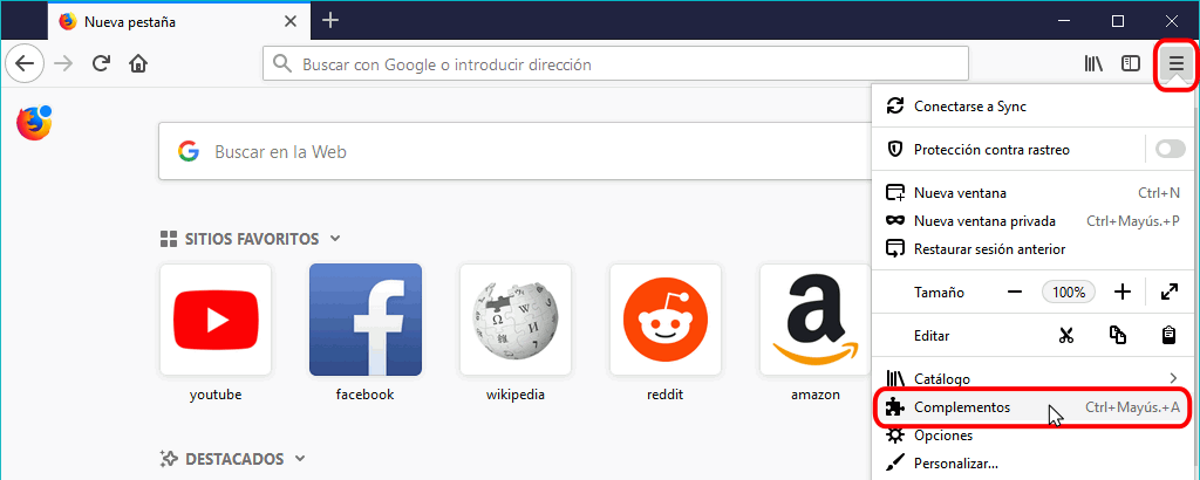
Some days ago Mozilla announced that Firefox will discontinue side loading support for extensions in 2020. The organization said that this change, that should end with the launch of Firefox 74 which will give users more control over their extensions.
As Mozilla's announcement explains, the support of pre-installed plugins, they are a way to install an extension in Firefox by adding an extension file to a special location using a program. This method was originally created to help developers of desktop applications. In case they want to distribute a Firefox extension with their desktop application, developers could configure the application installer to add a Firefox XPI extension file to the Firefox browser folder.
In theory Mozilla allowed this because it could be useful by facilitating the installation of an extension on multiple instances of Firefox. in a single device. Mozilla has also stated in its official documentation that this feature can be used to install versions of extensions that developers want to test before releasing them publicly.
In a post, Mozilla notes that:
Installing extensions by this method often causes problems for users because they do not explicitly choose to install them and cannot remove them from the plugin manager. This mechanism has also been used in the past to install malware on Firefox. To give users more control over their extensions, the support for side loading extensions will be suspended.
“We have heard comments expressing confusion about how this change would give Firefox users more control. Since we implement abuse reports in Firefox 68, the most commonly used report type is the installation of unexpected extensions that cannot be removed.
In addition, the reported extensions are distributed by pre-installation. With this change, we are imposing greater transparency in the installation process by offering users the option to install a companion extension to the application and allowing them to remove it whenever they want. Developers will remain free to distribute extensions on the web, and users will be able to install distributed extensions on their own.
Business administrators will be able to continue implementing extensions to their users through policies. These changes may affect other forms of self-expanding deployments, such as those used for some Linux distributions and applications, such as Selenium. We are still studying some of the technical details of these cases and will try to find the right balance between user choice and minimal disruption.
In consecuense, Mozilla plans to no longer support this feature next year in a two-phase plan. The first will take place with the launch of Firefox 73 in February 2020.
The other is in March 2020, with the release of Firefox 74, Mozilla plans to completely remove the ability to load extensions. At this point, Mozilla expects all extensions loaded in this way to move to the user plugins section.
In addition, blog post is for extension developers, which will need to update their extensions and make them available through another installation mechanism.
There are currently two other ways developers can distribute extensions and by which users can install them.
- The first and better known is to install extensions from the official portal addons.mozilla.org (LOVE). Mozilla checks for the extensions listed here, so most are relatively safe, although security controls do not allow 100% to capture all malicious code.
- The second involves the use of the option "Install plugin from file" in the Firefox Add-ons section. Users must manually download a Firefox XPI extension file, visit the add-ons section, and then use the "Install add-on from file" option to load the extension into their browser.
This option is generally used to upload extensions that need to manage sensitive business data in business environments and cannot be distributed through the AMO Portal.